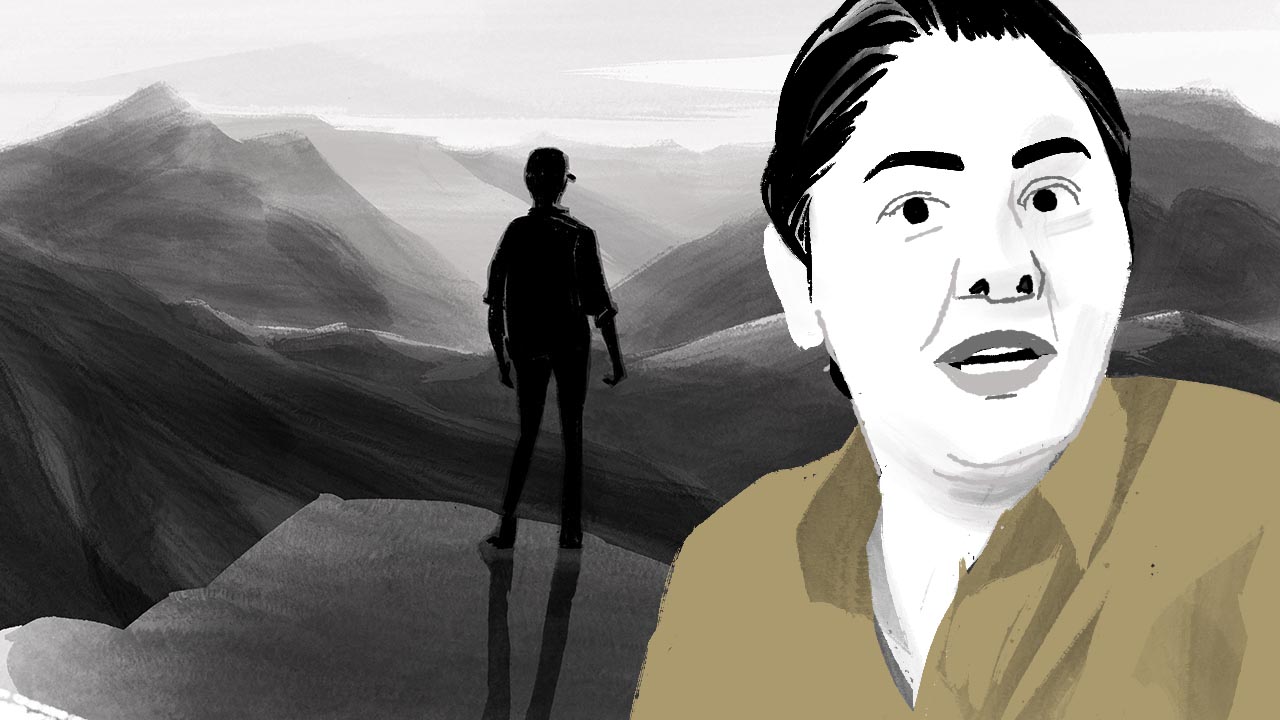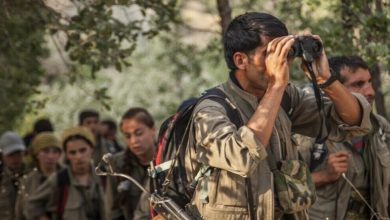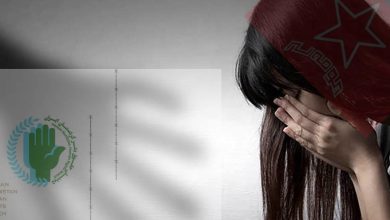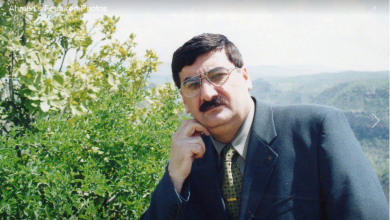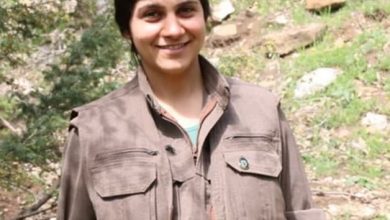In the shadow of strict traditions and a closed cultural environment in Iran’s border regions, the fate of women sometimes takes a tragic turn. Rangin Mohammadpanah, a young woman from Marivan, after enduring years of domestic violence and being deceived by agents of the KOMALA group, became a member of this armed organization. However, what she actually encountered was neither freedom nor respect, but rather humiliation, abuse, and a violation of human dignity. Rangin’s story serves as a serious warning about the exploitation of vulnerable and deceived women in cyberspace by armed groups.
Social and cultural issues in various communities, particularly in marginalized and rural areas, have profound effects on individuals’ lives, both personally and collectively. The story of Rangin Mohammadpanah, daughter of Mohammad, born on February 24, 1988, in Marivan, is an example of the identity, family, and social challenges that women face in such traditional societies. This narrative not only illustrates the personal problems of a divorced woman but also highlights the social and cultural structures that influence her life. In societies where traditional values and norms prevail, women, especially when facing divorce, encounter severe social judgment and family pressures.
Rangin’s low level of education and her bitter experiences in marriage reflect the challenges many women face. The inability to achieve financial and social independence leads to dependence on family and, consequently, enduring violent behaviors. Furthermore, her connection with an individual from armed groups like KOMALA indicates a search for identity and security in difficult circumstances. This issue can be seen as a reaction to identity and social crises that many women turn to in search of new solutions to escape difficult situations.
This interview explores various dimensions of Rangin Mohammadpanah’s life and can be used as a case study to better understand the social challenges of women in traditional societies and their impact on individual and collective decisions.
Rangin Mohammadpanah has a fifth-grade primary education and, due to an unsuccessful marriage and divorce, resided at her father’s house for some time. One of Rangin’s brothers, who had a history of mental problems, quarrels, conflicts, and being a fugitive, always physically abused and insulted her because she was divorced. Other family members, except for her patient and calm father, also insulted her. These problems led Rangin to consider escaping from home. At that time, she connected via Instagram with a person named Noushin, who was from her village. Since Noushin and her husband were members of KOMALA, Noushin deceived Rangin with promises of money, a house, migration, and more. Ms. Mohammadpanah, guided by Noushin, illegally crossed the border near Baneh and joined KOMALA. Ms. Mohammadpanah is currently married and has an 11-month-old child; her husband works as a laborer in Baghdad and Sulaymaniyah.
Question: Please introduce yourself and tell us what led you to the armed group KOMALA?
Rangin: I am Rangin Mohammadpanah. I don’t have much education; I only studied up to the fifth grade of primary school. We lived in a village where women, especially, lived in silence and suffering. I got married, but that marriage was unsuccessful; it was full of arguments and disrespect and quickly ended in divorce. I returned to my father’s house, where I hoped to find refuge. But the reality was different. From the very beginning, I was judged again. My family, especially my mother and sisters, were ashamed of my divorce and showed it. No one listened to me, and no one understood me. Only my father was somewhat calm, but he was also a man who always remained silent and couldn’t stop others. The hardest part was the behavior of one of my brothers. He always fought with others and had a history of quarrels and conflicts, but he had the most problems with me. He said that because I was divorced, I was a disgrace to my family, and he beat me many times. He humiliated me in the worst possible way. I will never forget one night after an argument, I cried in the corner of the room until morning, thinking only about how I could escape this life.
Question: What made you decide to leave home and join KOMALA?
Rangin: On one of those nights when everything seemed dark to me, out of despair, I turned to Instagram. There, I met a girl named Noushin. She was also from our village but had left Iran years ago. Her demeanor was very warm, as if we had been friends for years. Gradually, we became close, and she told me that she and her husband were members of the Komala group and lived at their headquarters. Noushin began talking about “freedom,” saying that there, women were respected, had homes, received salaries, and could even immigrate to Europe. For me, who was imprisoned within the walls of my home, these words were like a light in the darkness. Gradually, I decided to escape that life. I saw no future, and there was no one to help me; only Noushin said she would save me. Guided by Noushin, I contacted smugglers and illegally left the country from the Baneh border without any documents or permits. I was scared, but I had nothing left to lose. This happened in the fall of 2018, and my membership in KOMALA lasted about two months.
Question: When you entered the KOMALA headquarters, what did you see? Did reality match what had been promised?
Rangin: No, nothing was like the promises. When I arrived, the first thing I saw were tired, harsh, and soulless faces. No one was happy about my arrival, and it was as if I was just a new number. Noushin and her husband didn’t pay much attention to me either, and I realized that their job was only to bring people in, not to support them. From the very first day, they took us to military training. We woke up early in the mornings and had to do tough exercises, mountain running, shooting practice, and tactical training. For me, who had never even seen a weapon up close, these were a huge shock. My body couldn’t handle it, and I fainted many times, but no one cared. They just said, “Learn faster, we don’t have extra time here.” Ideological classes were also held, but not for education, rather more for brainwashing. We had to repeat things we didn’t understand at all. Anyone who asked a question or objected was insulted. Most sessions were spent humiliating newcomers. For me, who had escaped from humiliation, this situation was like returning to hell.
Question: What were your experiences in your daily interactions with other members, especially the men in the group?
Rangin: There, no one cared about anyone else. An atmosphere of competition, backbiting, jealousy, and fear prevailed everywhere. I thought there might be empathy among the women, but even there, there was no support. Men often treated women like tools. They showed superficial respect, but in private, their gaze was completely different. From some conversations and behaviors, I realized that being a woman had no value in that group. Several times, I also witnessed how women were treated. A woman who objected disappeared for a while, and after returning, she was no longer the same person; she had become silent. This became a big warning sign for me.
Question: What led you to leave KOMALA, and what is your current life situation?
Rangin: After a while, I married a man who was also trapped in that group. We decided to save our lives. I also have a son by him, who is now eleven months old. His birth changed everything for me. I no longer thought only of myself but also cared about his future. I didn’t want my child to grow up in the KOMALA headquarters with fear and a lack of identity. My husband went to Baghdad and then to Sulaymaniyah for work. With great difficulty, circumstances arose that allowed me to separate from the group. Gradually, I reached out to people who helped me, and finally, on January 7, 2019, I separated from KOMALA and returned to Iran. I couldn’t believe it, but I had found life again; this time, not for myself, but for my child.
Question: After returning to Iran, what reactions did you receive from your family and society? Were you able to rebuild your life?
Rangin: I was scared and thought my family would reject me. But my father, as always, reacted calmly and said he was just happy that I was alive. My mother and brother no longer had the same power to argue with me. Now I was a mother, and everyone understood that I returned only for my son. Regarding society, I must say that there are always rumors, but I have learned not to let people’s words affect my life. Gradually, I am working and moving forward with my life, waiting for my husband to return. I have learned from my experiences and am no longer looking to escape; instead, I am looking to build my life.
Question: If a girl or woman finds herself in your current situation, what advice would you give her?
Rangin: I would tell her: Don’t trust anyone, especially those who make promises from afar and from behind a mobile screen. If you are tired and in a lot of pain, look for people who are truly by your side. The right path might be harder, but it is more real. I made a mistake, but now I have returned so that other girls do not become victims of lies like me.

